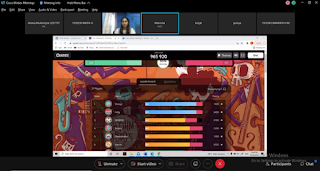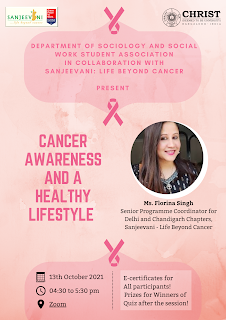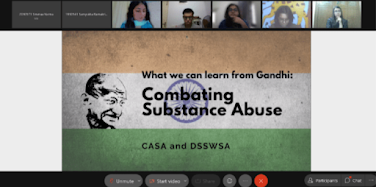Fast fashion is a highly profitable and exploitative business model based on replicating catwalk trends and high fashion design at a mass scale at a low cost. Most of these clothes are made by workers with low wages in deplorable conditions below the poverty line. Ethical fashion focuses on human and animal rights which implies good working conditions, fair wages, pensions and fair treatment of humans and animals—maintaining a balanced ecosystem while respecting animals and our environment and designing fashion garments according to ethical guidelines.
Sustainable fashion is being concerned about the environment. It includes a fashion with recyclable, organic fibres, which can also be repurposed. Fashion items with minimal chemical fibres, toxic dyes, and less virtual water and energy consumption are sustainable. Slow fashion emphasises the importance of quality over quantity. It tries to understand the nuances behind clothing. The shelf life of a particular piece of clothing should be at least more than two years, and the company that manufactured the clothing should be transparent enough to reveal its policies and practices.
Ms Kinjal added to the discussion by covering the environmental impact of fast fashion on oceans due to microplastics and microfibres taking over the marine ecosystem. Promoting second-hand wear requires a change in mentality; Fast Fashion items should be reused and recycled.
The next question addressed some of the pros and cons of thrifting, wherein Kinjal provided a practical insight by showing thrifting's positive and negative sides. She gave the audience tips encouraging them to start thrifting. She cautioned the audience about scams on social media sites in the name of thrift stores.
The discussion then took a turn to address some of the policies of thrift shops regarding unused clothing. Punya addressed this question by elaborating on some of her return policies which may go back to the seller or get donated if the item is not sold. She talks about her pricing mechanisms based on the condition of the clothing item - whether it's not worn, old, new, et cetera. Kinjal specified having fair prices by grounding high prices to match the realistic expectations of the buyers and sellers. She focuses more on the sustainable aspect of thrifting rather than thrifting as a business model for second-hand clothing.
Kinjal shares the history of her store as she saw her friends thrifting for the first time and then continued to thrift more in the future. "Making people conscious of thrifting trends is one of my cherished memories." Punya specified that one could buy items from other second-hand stores; however, it is becoming more popular than social media influencers endorse. Thrifting should not be undertaken as a trend; one must make a conscious effort to become more sustainable through thrifting.
Following this discussion, both the speakers elaborated on some of the myths related to thrifting. Kinjal explains some of the major misconceptions between thrifting and reselling clothes and hand-picked items, often displayed in thrift stores online. "Customers should know which ones are the thrift stores, reselling stores, and other hand-picked curated items."
Both the speakers elaborated on some of the myths related to thrifting. Kinjal explains some of the major misconceptions between thrifting and reselling clothes and hand-picked items, often displayed on thrift stores online. "Customers should know which ones are the thrift stores, reselling stores, and other hand-picked curated items."
Punya says that many thrift stores are marketed as being affordable; hence it is looked down on. She says, "Only people of a certain financial level thrift. This is not true as thrifting is not about financial status; it is more about giving an item a longer life." Thrifting is affordable; however, there should not be misconceptions about prices and thrifting.
Post the discussion, a short quiz was held, moderated by the session's facilitators, and then a short Q and A session resulted in further discussion. Some important points were about the future of thrift stores and India and the inclusivity of sizes in these thrift stores. An interesting discussion also occurred regarding the ethical and sustainable practices of thrifting itself. Thrifting is more about giving life to an already worn piece of clothing rather than consciously only buying sustainable and ethically sourced fashion items.
The session was brought to a close by a vote of thanks delivered by Keerti Narayanan of 3PSEco.





